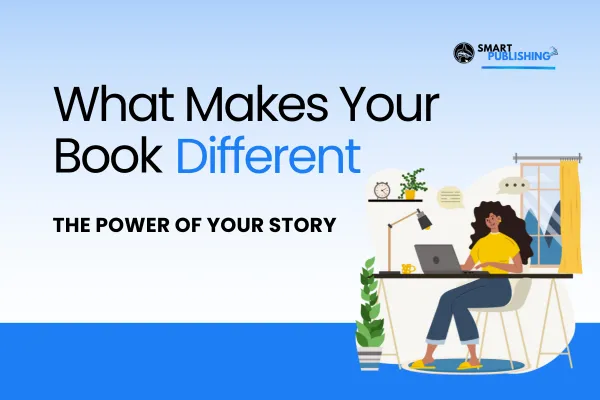
What Makes Your Book Different? The Power of Your Story
What Makes Your Book Different? The Power of Your Story
You know what I love about helping authors? Watching someone realize that they are the secret sauce.
In this episode of the Smart Publishing Impact Series, I hopped on the mic with no script, just a headset that made me look a little dorky (you’re welcome, YouTube viewers). But what came out was a message I feel really strongly about—and I know many of you need to hear:
Your story is worth telling.
In fact, your story is what will differentiate your book from the sea of content already out there.
Let’s be real. There are millions of books on every topic under the sun. You could write a book about leadership, forgiveness, finance, grief, parenting—whatever—and I guarantee there’s already a bookshelf full of similar titles at your local library. That’s where so many new authors freeze.
They think:
“Why should I write this? It’s already been done.”
But here’s what I want you to remember:
No one has written your version.
Why Your Story Matters
I’ve said it before and I’ll keep saying it—no one can write your story but you. That’s your edge. Your lived experience, your take on the subject, your scars and lessons—that is what people connect with. When you weave personal stories into your writing, you're not just sharing information. You're creating resonance.
Sure, some folks hesitate. I hear it all the time:
“My story’s not that interesting.”
“It’s too personal.”
“It’s not a big deal.”
But you know what? That’s usually a sign you should tell it.
If your story makes you feel vulnerable, that probably means it will impact someone else. And yes, it might even be therapeutic for you along the way.
But Isn’t That... Self-Centered?
Let me be clear: telling your story doesn’t mean turning your book into your diary.
If you're writing a memoir, that’s one thing—go for it. But if you're writing a book to help readers learn something (which is most of our authors at Smart Publishing), then the goal is to blend your personal narrative with universal takeaways.
In every chapter, you need to do three things:
Tell what happened (your story).
Extract the principle.
Translate it for the reader’s benefit.
This is where your story becomes not just yours—but theirs, too.
Make It Specific. Make It Yours.
Sometimes, differentiation doesn’t just come from story—it comes from niche.
When I wrote The One-Hour Author, I didn’t just want to write another book about writing books. I wanted to speak directly to the busy entrepreneur, the time-strapped professional, the person juggling real life who still felt called to write. That’s how you stand out.
Niche it down. Speak to someone specific. Bring your voice.
Because otherwise? Yeah, your book probably has already been written.
Final Word
If you’re hesitating to tell your story because you think it’s not special or relevant, this is your sign: write it anyway.
The world doesn’t need another generic book—it needs you.
Your story. Your way.
That’s what will make your book unforgettable.
So tell it.
